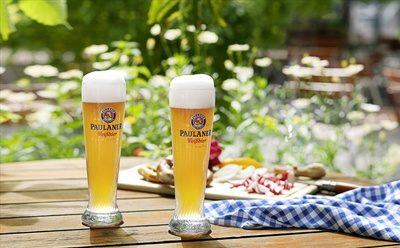Brewery commits to best in production and environmental protection
Founded in 1634, Paulaner has a long history of producing quality Weissbier. But the traditional brewery is also playing a leading role in environmental protection.
Along with ensuring only the best ingredients and the best method of production are used, Paulaner also has a commitment to social responsibility and environmental awareness. The company has addressed water use, carbon emissions and heating in recent years.

Since 1990, Paulaner has reduced its water consumption by more than half. Previously, around eight hectolitres of water were used to produce one hectolitre of beer. Today, the company uses only 3.63 hectolitres and is aiming to reduce this figure even further.
In 2011, the brewery’s annual emissions were 7727 tonnes - around 1500 tonnes lower than the amount the company was legally allowed to emit under the EU emissions trading scheme. Compared to 1990, CO2 emissions from the furnaces have been reduced by 70% - for the same amount of beer produced.
Paulaner operates its own sewage treatment plant capable of treating the amount of sewage a town of 15,000 would produce every day. In 2011, the decomposition of the pollution load produced 737,749 m3 of biogas. The biogas is used to produce about 15% of the company’s heat demand. The company aims to increase this to 20%.

The boiler furnace heating the beer wort also produces flue gases, which retain some of the heat. This heat is used to warm the installation and administration buildings, saving 590,200 m3 of natural gas each year. This same amount of gas could supply heat and hot water to 168 single-family homes in Germany for a year.
The brewery’s self-imposed eco-management system has been recognised with official state certification DIN ISO 14001.
Given that Paulaner produces more than 2.2 million hectolitres in a year, its energy and water savings amount to a significant contribution to environmental protection.
Whey to go up: unlocking further potential for cheese by-product
A new mixed-method study explored four models that could provide potential for the Australian...
New farmer incentives to reduce on-farm emissions
Fonterra has announced new funding for farmers to reduce their on-farm emissions.
Food ingredients business installs electric boiler to reduce emissions
Shifting from gas towards electricity from renewables, Arla Foods Ingredients has installed an...














